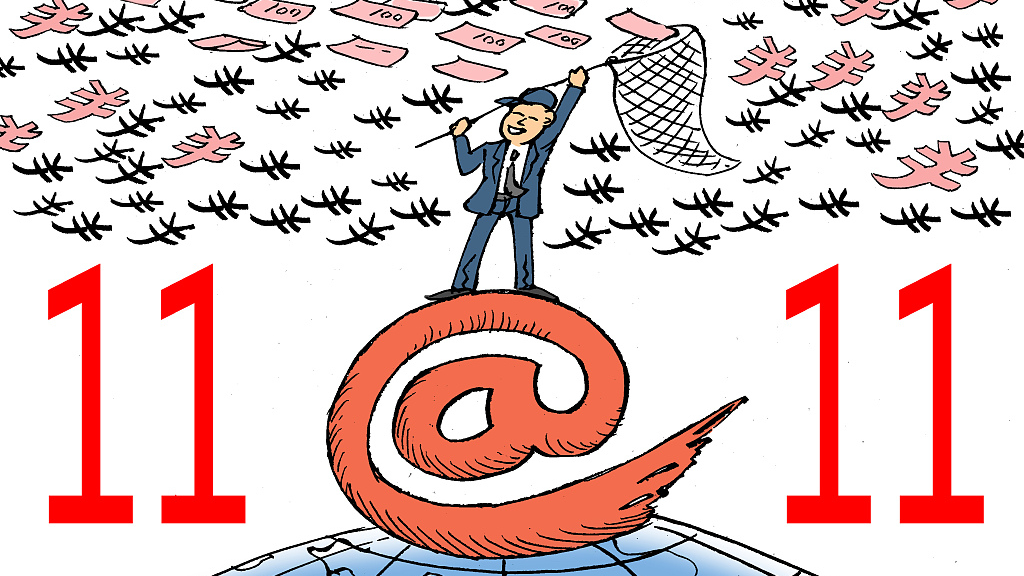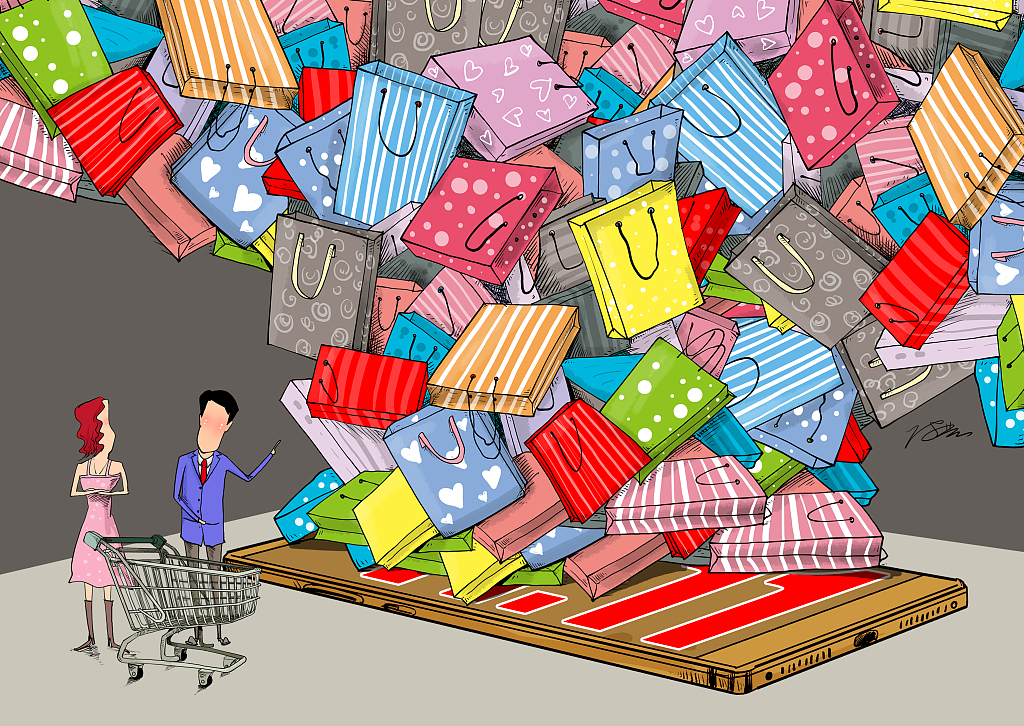
As one of the largest shopping galas - "Singles Day", also dubbed as China's Black Friday - is approaching, hundreds of millions of people in and out of the country are ready to spend lavishly on that day. According to Alibaba, the initiator of the event, more than 200,000 brands will join the shopping extravaganza and over one million new products will be on sale, which is expected to be a huge blow to consumers' wallets, especially those who cannot quench their buying impulses.
Online shopping has always been regarded as a great innovation in the 21st century due to the convenience it brings to people's daily lives. But according to the predictions published by Gartner on Thursday, by 2024, the World Health Organization (WHO) will identify online shopping as an addictive disorder, as millions abuse digital commerce and encounter financial stress.
The report indicates that the ease of online shopping will cause financial stress for millions of people, as online retailers increasingly use AI and personalization to effectively target consumers and prompt them to spend discretionary income that they do not have. The resulting debt and personal bankruptcies will cause depression and other health concerns caused by stress, which is capturing the attention of the WHO.

In August, a Chinese media outlet reported that a middle-aged man was going to commit suicide due to the huge debt crisis resulted from excessive consumption before he was saved by the police. He was lying on the muddy swamp less than a meter away from the fast-flowing stream, murmuring that he was sorry to his parents and wanted to end his life when the police arrived, because he couldn't pay off the 200,000 yuan (nearly 30,000 U.S. dollars) debt owed from shopping online.
People complain that they have gradually used online shopping platforms out of habit. "I always click my 'Taobao' (an Amazon-like app) subconsciously, as long as I have spare time, I will open the app, look through the items and add one or two in my shopping cart," an anonymous major online shopper told CGTN, "I would feel empty and depressed if I don't buy things for a while". But the truth is they always end up wasting money on things they don't need.
Another interesting piece of research conducted by a group from Shenzhen University and the University of Richmond in Virginia in 2018 shows that a part of the reason behind Chinese online shopping indulgence is because of the word "Mianzi", which in Chinese means prestige and honor.
"The concept of mianzi implies the importance of maintaining social image and status in China," He Heping, assistant professor at Shenzhen University, and lead author of the study explained. "Consumers are likely to make choices which reflect personalities that match their self-image or ideal selves." The study shows that the more money someone spends implies the more money they have, which is linked to their social status. Statista data shows the number of online shoppers in China has been increasing exponentially from below 34 million in 2006 to over 610 million users in 2018.
The phenomenon is not limited to China. According to Priory, a UK-based health group, as many as 1 in 20 people in developed countries may also suffer from shopping addiction or compulsive buying disorder. But the shopping psychology may not be the same. Anyway, watching out, be aware of falling into the "misery hole."